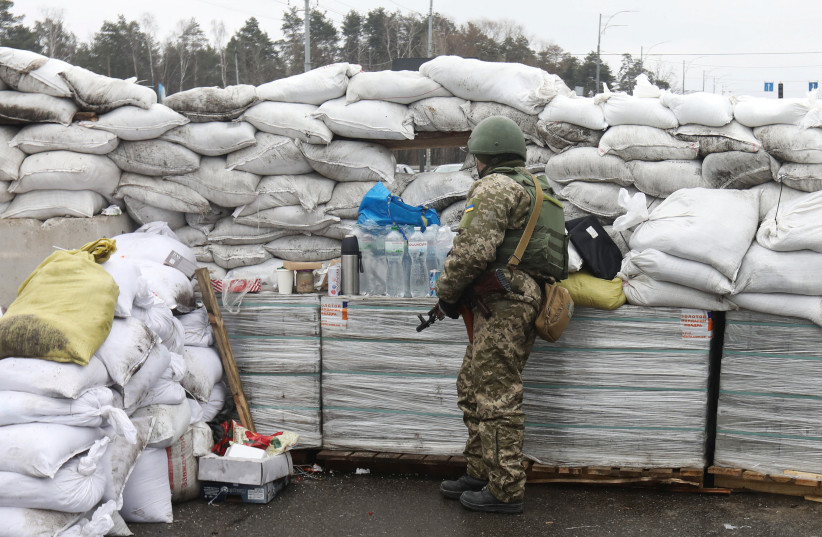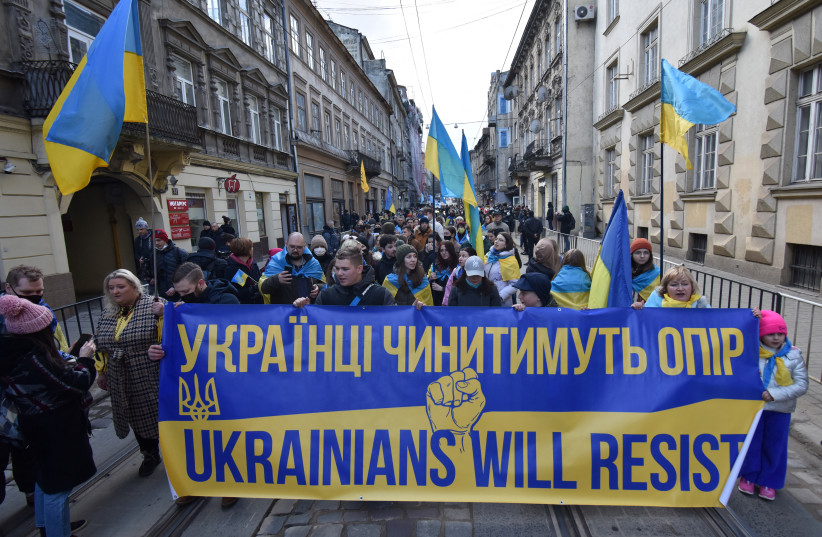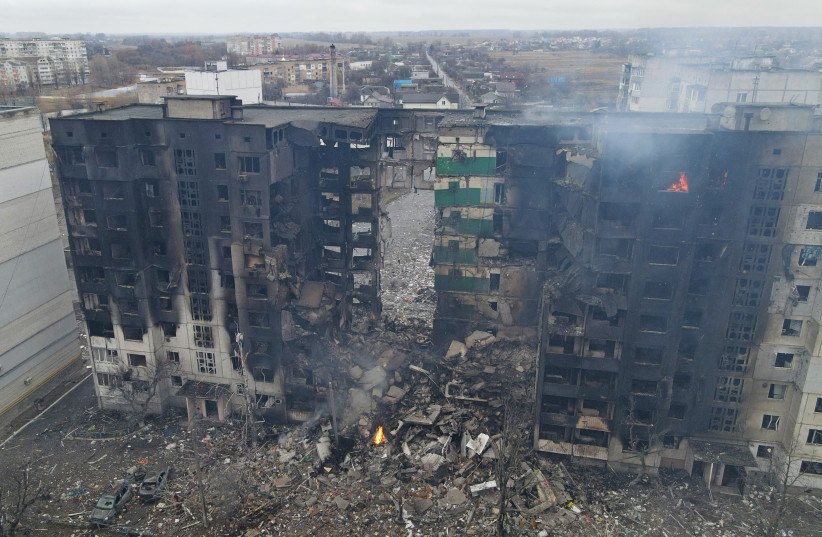Lviv, the main city of western Ukraine, is crammed with refugees from further east, and south.
There is a non-stop traffic jam in the town center. Vehicles containing whole families – grandmothers, mothers, small children – are collected around the city’s central station. One sees the families camped out in the teeming station, waiting for trains to the Polish border, and safety.
Read more on the Russia-Ukraine War:
The March cold is biting. As the darkness descends, people huddle round improvised fires set in old barrels. The reflection of the fires illuminates peoples’ faces. A woman is singing a Ukrainian song. It is one of the slow, ringing rural melodies that are the staple of this country’s musical traditions. The effect is eerie.
An air raid siren pierces the night air.

The crowds at the Lviv station are notable for this good humor, and calm, despite the trying circumstances. It is very different to what one might find in similar circumstances in the Middle East. There are hardly any uniformed police in the teeming station. No soldiers on duty. Only a few orange jacketed volunteers seek to martial the crowds and keep order. Yet despite the absence of uniformed authority, there are no scenes of disorder.
The outward calm should not lead an observer to underestimate the extent of the tragedy taking place in this country. Over 800,000 Ukrainians have left the country for neighboring states, since the commencement of the Russian invasion on February 24th. An unknown additional number have become internally displaced. The crowds in central Lviv are a part of this exodus, hardly with precedent in Europe in recent decades. Many city dwellers have sought refuge in the village homes they had left years earlier. There, with near self sufficient access to food and shelter, they hope to wait out the storm.
Sometimes the strain of the circumstances breaks through, despite the stoicism. Sitting in a café by the station, I picked nervously at my meal as a young woman opposite me wept, silently and at length, her partner holding her. A small dog enclosed in a sort of plastic basket was by their side.
The platforms for trains leading west were packed and teeming. There was a confused rush for the trains as soon as the doors were opened. Some people brandished tickets and immediately boarded. Others, having been told that travel was free, crammed aboard at the last minute. The trains, their windows blacked out presumably in the forlorn hope of avoiding attack from the air, then slowly lurch away.
On the platform for the trains heading east, there are no crowds. I am waiting for a train to Kyiv. I strike up a conversation there with Rosistlav, a 37 year old Orthodox priest. Kyiv-based but a native of Lviv, he has spent the last days settling his wife and two sons in with his parents in the western city, as far from the guns as is possible. Now he is heading back to the beleaguered capital, to resume his priestly duties. We watch as young volunteers hand out steaming plastic cups of tea to the assembled passengers. I remark again on the calm of the crowds.

"I’m proud of my people," the priest tells me.
I am thinking to myself that while the calm is impressive, the apparent absence of uniformed authority and the teeming throng of people would make it a tempting target for the Russian ‘saboteurs’ reputed to be at work in the cities.
There is certainly an unseen Ukrainian security presence too. On one occasion a seemingly innocuous man suddenly produced a plastic card and demanded my "documents." My Israeli passport satisfied him. One hopes there are many such people among the crowds at the station.
We arrived in Kyiv in the mid-morning. I was last here in September of 2021. It was late autumn and couples and families had been out enjoying the still sunny autumn weather, in Marinsky Park and the other green stretches, adjoining elegant late Russian Empire buildings that are a feature of this city.
Now Kyiv has an unmistakable feeling of dread laid upon it. The streets are nearly deserted in the mid-morning. A middle aged man asks us if we know where there might be a pharmacy open. An old woman is looking for an open food store. We tell her we have just arrived and have no idea where to find one. She wishes us health and success all the same, in the profusive way that is the local style.

A Russian armored column is currently stalled 20 miles outside of the city. It has been making its slow progress towards Kyiv from the Belarus border since the first day of the war. Kyiv is huddled and awaiting its arrival.
Rostislav tells me a story a rabbi of his acquaintance taught him, according to which the solidarity and generosity which people show when faced with a common enemy should not be taken as resembling the relations between people and all living things when the kingdom of heaven is realized on earth. At that time, he tells me, before heading back to his parishioners in the beleaguered city, generosity and kindness will be spontaneous, without the need for an external stimulus.
Putin’s armored convoy, meanwhile, will shortly resume its slow advance toward the city.
